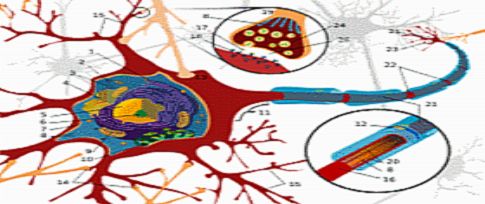
|
|
 |
Statins Alter Prostate Cancer Patients' PSA Levels ScienceDaily (Apr. 30, 2009) Beyond lowering cholesterol, statin medications have been found to have numerous other health benefits, including lowering a healthy man's risk of developing advanced prostate cancer, as well as lowering his prostate-specific antigen (PSA) levels But a new study by researchers at Henry Ford Hospital finds that statins also can lower PSA levels in men with prostate cancer, potentially altering the results of a patient's PSA test and masking his risk for prostate cancer. "We found that PSA levels are actually significantly lower in prostate cancer patients on statins versus prostate cancer patients not on statins," says study lead author Piyush K. Agarwal, M.D., an urologist at Henry Ford Hospital. "The implication is that we may need to lower our PSA threshold for performing a biopsy in patients on statins, as statins may decrease the amount of measurable PSA." Dr. Agarwal and his colleagues will present the results from their study Tuesday, April 26 at the American Urological Association's annual meeting in Chicago. A PSA test - which measures PSA levels in a man's blood - along with a digital rectal exam are most frequently used to help screen for prostate cancer in men age 50 or older. Increased PSA levels can often signal benign prostate conditions or prostate cancer. Previous studies have shown that statins can lower absolute PSA levels in healthy men. Until now, however, there have been no studies that looked at the effect of statins on patients with prostate cancer. In a review of 3,828 patients undergoing robotic-assisted lapraroscopic prostatectomy at Henry Ford Hospital from January 2001 to July 2008, Dr. Agarwal and his colleagues identified 1,031 patients who were taking statins prior to surgery. Those patients were then compared against patients not taking statins preoperatively to measure PSA levels based on age, BMI and Gleason score, a classification of the grade and stage of prostate cancer. The study revealed that PSA levels were lower in patients taking statins prior to surgery. This difference was statistically significant and also present based on various age ranges studied. For overweight patients (BMI 25-30) using statins, PSA levels were found to be lower compared to patients not taking these medications. PSA levels, however, were not significantly lower in patients taking statins for Gleason 6 and Gleason 8-10, but were for those with Gleason 7 disease. Gleason 7 disease accounted for the majority of cancers in the study group, with 57 in the statin group and 54 percent in the non-statin group. In addition to Agarwal, study co-authors from Henry Ford are Louis S. Krane, M.D.; James O. Peabody; Hans J. Sticker, M.D.; and Mani Menon, M.D. adapted from materials provided by Henry Ford Health System , |
Website Maintained By L VISHNU PRASAD ,Chennai ,India.

